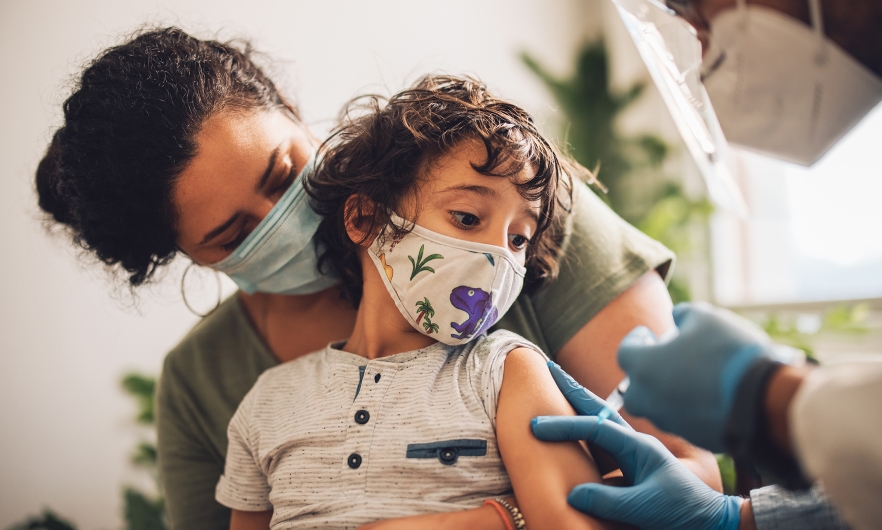What Parents Need to Know About COVID-19 Vaccines for Children

Vaccinating children ages 5–11 is critical to slowing the spread of COVID-19 in the U.S. and globally.
Parents may have questions about getting their child vaccinated and the benefits. Vaccine safety expert Kawsar Talaat, MD, who led one of Pfizer’s COVID-19 vaccine trials, has answers.
This Q&A is adapted from the October 21 COVID-19 Expert Media Briefing.
COVID is less severe in children, so should I still get my child vaccinated?
Yes. Even though the illness is mild for most of them, if you have millions of children being infected, some of them are going to be hospitalized. Some of them are going to end up in the ICU, and unfortunately, some of them are going to die. And what we've seen over the last couple of months is [that] those rates have gone up significantly. In September, we had over a million children infected with COVID. We had over 40 children die of COVID, and that's 41 deaths too many. One way we can protect them is by getting them vaccinated.
Is the COVID vaccine for children the same dosage as the COVID vaccine for adults?
No, children aren’t little adults. We can't give them exactly the same vaccine in the same dosage that we gave to adults and older kids.
When we did [COVID-19 vaccine phase 3] trials with kids, we looked at different doses to find the safest dose—the dose that gave the best immune response. We settled on a dose that's a third of the dose that is given in adults.
Will all kids ages 5–11 be eligible to receive the COVID vaccine right away?
Yes. The vaccine will be available to all children in this age range, regardless of preexisting medical history, the same way it was for 12–15-year-olds.
We've learned a lot from the initial vaccine rollout for adults, and we also have a lot more vaccine volume. There are 28 million kids between the ages of 5 and 11, and we definitely have 28 million doses of vaccine available for them.
Where can my child go to receive a COVID-19 vaccine?
The rollout to kids will happen not at mass-vaccination sites, but at their doctors' offices. Now, this obviously will potentially leave out some kids who don't have regular doctors that they go to, so safety net systems need to be put into place so that all kids have access to the vaccine. Additionally, some pharmacies will likely also carry the pediatric vial of the COVID vaccine.
My child is afraid of needles and getting vaccines can be an ordeal. Is there anything I can do to calm them ahead of getting their COVID-19 shot?
Make it routine, make it normal. You can even practice it at home with pretend shots and say, "It hurt a little bit and now it's all better and let's put a Band-Aid on it." Because of COVID safety precautions, nurses will probably be wearing masks and maybe a face shield, so prepare your child for that.
My child is immunocompromised. Will they have a different dosage/procedure for the COVID vaccine?
Right now, we don't have a lot of data on those kids because the trials generally excluded kids who are severely immunocompromised. However, if you can extrapolate from the adult and growing adolescent data, I would say that it’s likely those kids won't have as robust of an immune response to the vaccine as kids who aren't immunocompromised. So, it's important to vaccinate the people that they come into contact with because that will give them an additional layer of protection.
Kawsar Talaat, MD, is an associate professor in International Health and co-director of clinical research at the Johns Hopkins Institute for Vaccine Safety at the Johns Hopkins Bloomberg School of Public Health.





